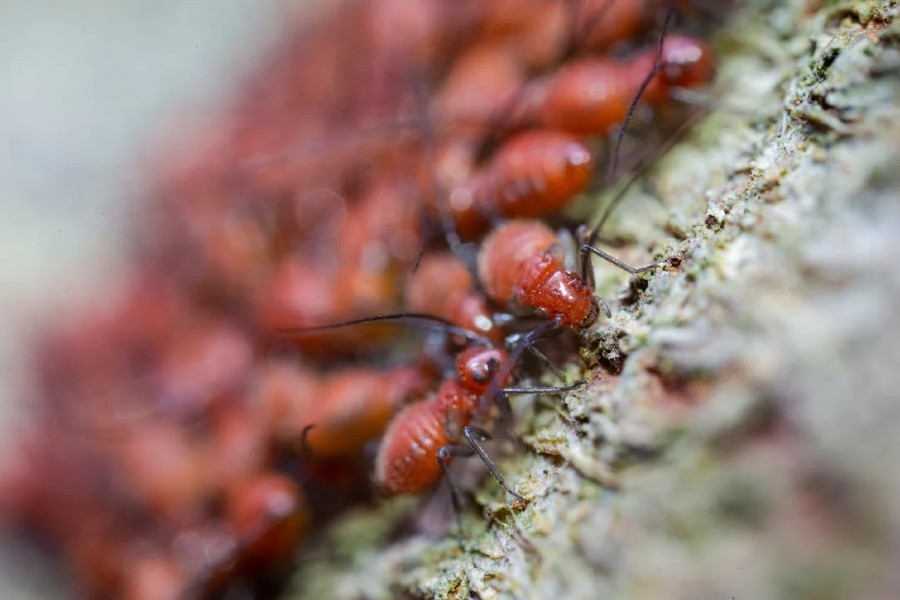
Most often, people associate pest control with spring and summer months when days are warmer and dry.
Insects and rodents are mostly active during warmer months as they are cold-blooded creatures and can’t adjust their body temperature. Besides this, there is a plentiful of food for pests to munch on. But when it comes to pest control management, winter is just as critical. As temperature drops, pests and critters look for shelter and warm places to escape the winter chills. Quarterly examination by Virginia Beach exterminators is one of the effective ways to ensure your home is pest-free year al year-round.
In this blog, we’ll explore why winter pest control is important, the types of pests that can become problematic during this season, and the benefits of quarterly exterminator visits.
1. Pests Are Active Even in Winter
If you’re one of those homeowners who believe that pests only bother during the summer months, we are here to dispel the myth. Pests don’t disappear during colder months- they simply relocate to warmer and cozier places. Yes, our homes!
Pests like rats, mice, cockroaches, and spiders invade our homes in search for food and shelter. And, if left unchecked can populate and do severe damage to the property and pose health risks. In fact, according to the National Pest Management Association, every winter, rodents invade an estimated 21 million homes in the U.S.
Some of the most common winter pests include:
Rodents (Mice and Rats): As winter approaches, rodents like mice and rats seek warmth and shelter in homes, garages, and attics. Once inside, these pests often gnaw electrical wires, insulation, and wooden structures of the house. Besides this, they carry deadly viruses and bacteria like hantavirus and salmonella.
Cockroaches: Cockroaches are not only unpleasant to the eyes but also hard to get rid of. These pesky critters are resilient pests that can thrive and survive in some of the harshest of conditions. They invade our homes to seek warmth and food and rapidly multiple in numbers. Droppings and skins shed by cockroaches are often the cause of asthma, allergies, and other respiratory issues in kids and adults alike.
Spiders: While many spiders go dormant in cold weather, certain species, like house spiders, remain active indoors. Spiders are not only a nuisance but can also bite if provoked, causing painful reactions.
Termites: In areas with mild winters, such as Virginia Beach, termites may remain active, especially in heated homes. They continue to feed on wood structures and can cause extensive damage if left unchecked.
2. Preventing Winter Pest Infestations
One of the primary reasons for quarterly exterminator visits is to prevent pest infestations before they become severe. Winter is the perfect time for pests to gain access to homes through cracks, holes, and other small entry points. Quarterly pest control visits help identify these vulnerabilities early, allowing exterminators to take preventive measures.
Sealing Entry Points: Exterminators will inspect your home’s exterior for gaps and cracks that pests can use to enter. They’ll recommend or apply sealants, caulking, or weather stripping to block these entry points, preventing pests from entering your home in the first place.
Inspecting Attics and Basements: Rodents and insects often make their way into attics and basements during the winter. Professional exterminators will carefully inspect these areas for signs of pest activity and take appropriate measures to eliminate potential infestations.
Proactive Treatments: While pests may not be as visible in winter, preventive treatments can still be applied to areas where pests are likely to hide. These treatments help create a barrier that keeps pests from settling in.
3. Why Quarterly Visits are More Effective Than One-Time Treatments
When it comes to effective pest management, consistency is key. Quarterly exterminator visits provide homeowners with year-round protection, ensuring that pests are kept at bay through all seasons, including winter. Here are some of the advantages of opting for quarterly visits:
Early Detection of Pest Problems: Regular inspections allow exterminators to detect signs of pest activity before an infestation becomes severe. This can save homeowners from costly repairs down the road, especially in cases where pests like termites or rodents are involved.
Preventing Pest Breeding Cycles: Many pests breed throughout the year, including winter. Regular pest control treatments help disrupt breeding cycles and prevent infestations from taking root.
Customized Treatments for Each Season: Professional exterminators tailor their treatments to the specific challenges of each season. During winter, they focus on sealing entry points, treating common indoor hiding spots, and monitoring for signs of pests that seek shelter indoors.
Long-Term Cost Savings: Although quarterly pest control visits may seem like an added expense, they are cost-effective in the long run. Preventive treatments and early detection reduce the likelihood of severe infestations, which can result in costly repairs or extermination efforts later on.
4. The Health Benefits of Winter Pest Control
Beyond protecting your home from damage, regular exterminator visits during winter also help safeguard your family’s health. Many of the pests that seek shelter indoors during winter months carry diseases and allergens that can pose serious health risks.
Rodent Health Risks: Mice and rats can carry a variety of harmful pathogens, including hantavirus, salmonella, and leptospirosis. They can also trigger asthma and allergic reactions, especially in children.
Cockroach Health Risks: Cockroaches can spread bacteria such as E. coli and salmonella, and their droppings can exacerbate asthma and allergies. Quarterly visits help keep cockroach populations under control, reducing these health risks.
Prevention of Structural Damage: Termites and carpenter ants may remain active during the winter if they find warm environments inside your home. Regular inspections and treatments help prevent long-term structural damage caused by these pests.
5. Pest Activity in Virginia Beach During Winter
While winter temperatures in Virginia Beach are milder than in other parts of the country, they still drop enough to drive pests indoors. The region’s relatively mild winters allow certain pests, such as termites and ants, to remain active throughout the year. Additionally, the moist environment created by coastal living can attract pests like rodents and cockroaches.
According to the Virginia Department of Health, the state experiences frequent rodent issues during the colder months, as these pests seek shelter indoors. Investing in year-round pest control, including winter visits, is essential for protecting your home from these pests.
6. Conclusion
Winter may seem like a time to relax from pest control efforts, but it’s actually one of the most critical periods for keeping your home pest-free. Pests such as rodents, cockroaches, and spiders often invade homes during the colder months in search of warmth and food. Quarterly exterminator visits during winter offer proactive protection by identifying entry points, preventing infestations, and safeguarding your home and family’s health.
Regular pest control treatments ensure that you’re not only dealing with existing pest problems but also preventing new ones from arising, making quarterly exterminator visits a wise investment for long-term peace of mind.
Become a Harlem Insider!
By submitting this form, you are consenting to receive marketing emails from: . You can revoke your consent to receive emails at any time by using the SafeUnsubscribe® link, found at the bottom of every email. Emails are serviced by Constant Contact






